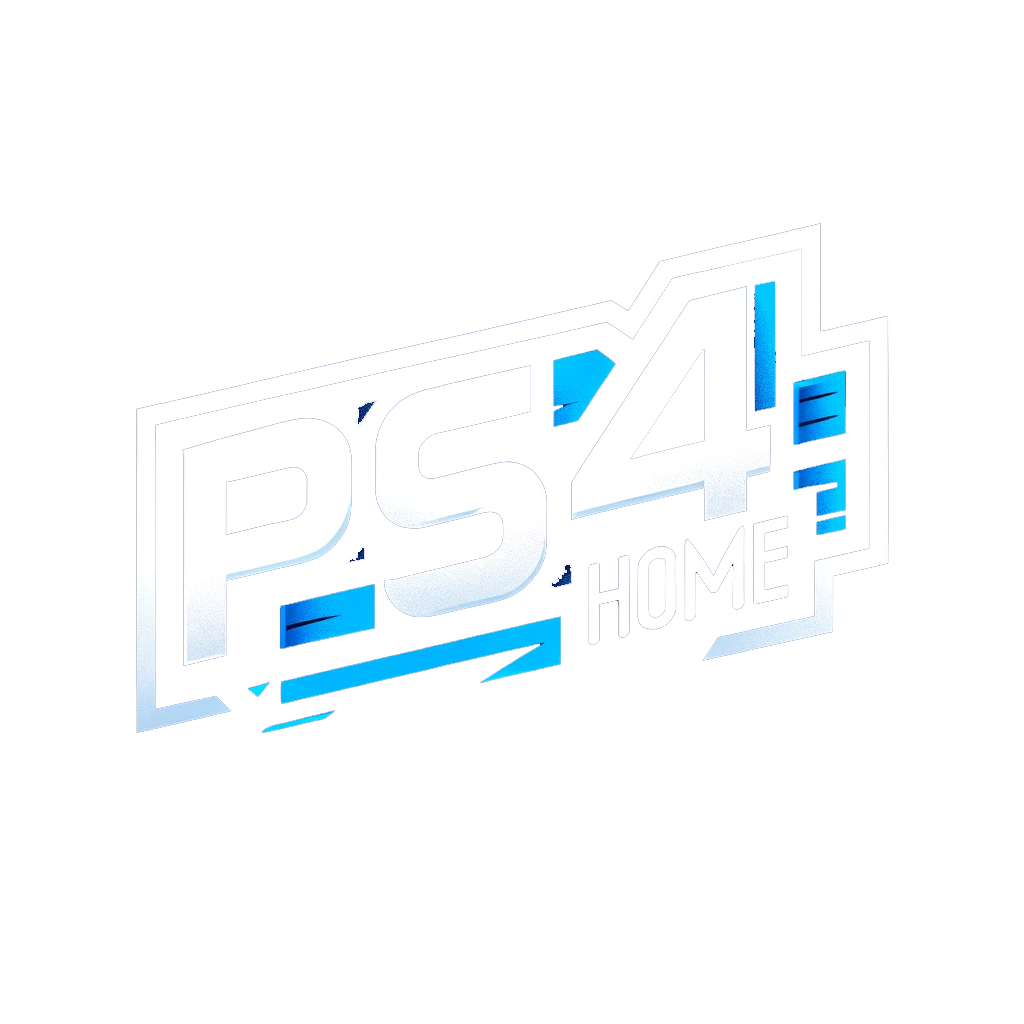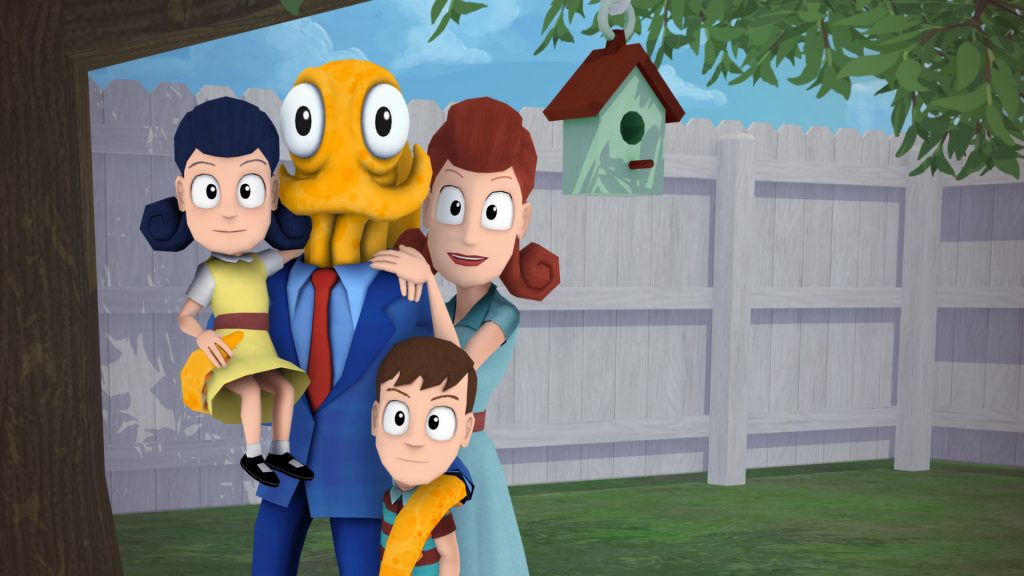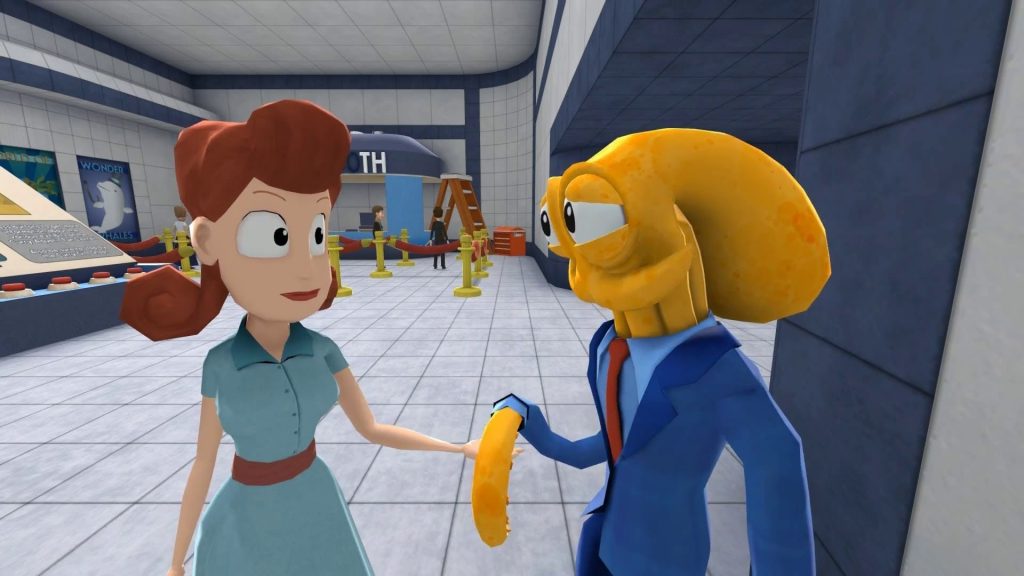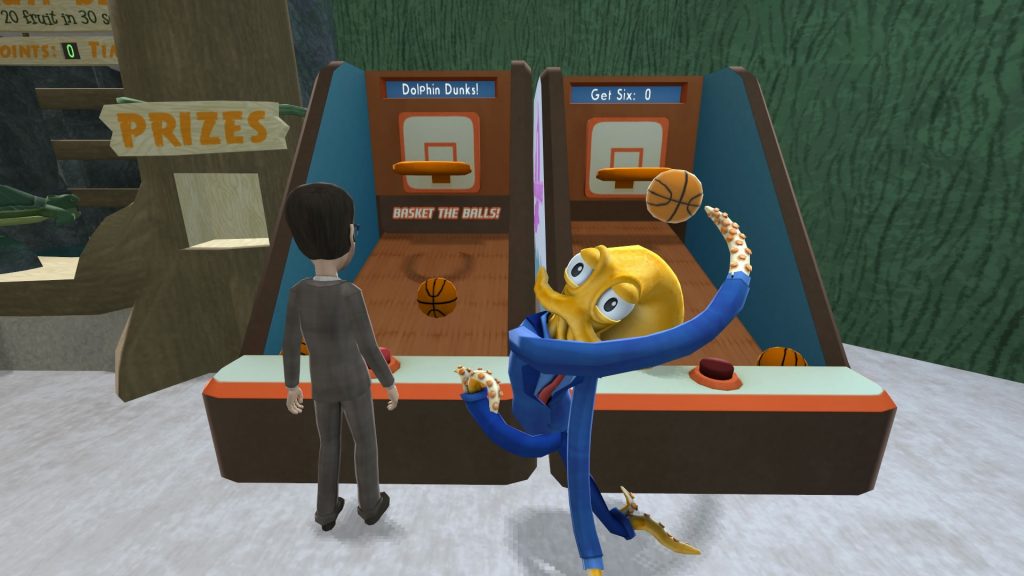“Octodad: Dadliest Catch,” the 2014 sequel to the 2010 “Octodad” by Young Horses, Inc., has only further bolstered the fledgling series’ somewhat unexpected popularity. From an outside perspective on the indie series, the name alone alerts a sense of weirdness with the cephalopod/father mashup and humor with its clever pun. The whimsical word “Octodad” is just amusing to say and think about. And thanks to these games, even more easily imagined.
So…why an octopus? Why Octodad, and “Dadliest Catch?” What is the creative motivation behind the nautical theme? Where did the unusual gameplay ideas stem from? With such originality and overflow of plain quirkiness, I personally love investigating to find out how these types of games come into existence.
According to Wikipedia, “The original Octodad was developed by a team of DePaul University game design students as an extracurricular activity. […] Its origins have been described as…’originally a joke, based on another idea that was a joke that came about through the frustration of us not being able to come up with something original’ as quoted by programmer Phillip Tibitoski.” (https://en.wikipedia.org/wiki/Octodad:_Dadliest_Catch.)
The initial idea was also “inspired by such movies as Men in Black and Being John Malkovich,” in which the former features a human-skin-wearing alien trying to blend in, and the latter dealing with people finding themselves in and controlling actor John Malkovich’s mind and body. Both explore what they can influence with the knowledge and power with “wearing” these bodies—same as Octodad, who pushes the limits of his “disguise” as he tries to remain normal—on a trip to an aquarium of all places—with his wife and kids in “Octodad: Dadliest Catch.”
Aside from the character design and story theme, the controls and gameplay are highly unique as well. The object of the Octodad games is to use a button as each of the four “limbs” (two arms and two legs in each pant leg) in order to perform tasks as a dad—an Octodad that is.
This revolutionary form of character control has been compared to the likes of the game Qwop (2008) as well as Surgeon Simulator (2013), Tea Party Simulator (2014), and I Am Bread (2014)—games where you carefully use different controller buttons to individually facilitate a different aspect of the hands, legs, (or tentacles, in this case,) to manipulate them to complete a specified goal. Reportedly, the not-so-successful game “Jurassic Park Trespasser (1998) served as an inspiration for [this] gameplay, particularly the controls.” (https://en.wikipedia.org/wiki/Octodad.)
When inspired by this control style, an octopus seems like a most fitting character choice to ensure the best loopy, limb-tangling disasters to amuse the player while also being more challenging to control the character—while fortunately offering crystal clear instruction and interface as to what tasks to accomplish and how.
Add to the equation having to perform average, human tasks (such as a dad would do)—on land—and you’ve got a highly effective combination. (Don’t worry if household chores seem daunting, as they are only a fraction of the game. As soon as the family goes to the aquarium, there are dozens of “fun-ducational” mini-game style goals for Octodad to accomplish.) All this makes for successful entertainment, and with all with visual and character design and theme aside, a solid core of pure plot, strategy, and gaming.
The name “Dadliest Catch” is of course a play on the reality fishing show “Deadliest Catch,” (2005-present.) There is even a flashback that features a large fishing boat in a storm. So it’s really a delicious triple layer of cleverness that more than perfectly describes elements of the game: a reference to the fishing show, to the role of dad, and to being “caught” as non-human.
Armed with all this background knowledge, one can now really understand the “origin story” behind the game and begin to understand that the idea makes decent sense. This well-received video game sequel is available on the PlayStation 4 later this summer.
All in all, “Octodad: Dadliest Catch” just odd enough to “catch” the potential player’s intrigue to quickly become attached to an, believe it or not, admittedly relatable, admittedly lovable octopus dad and have silly fun that’s addictive, rewarding, and frustrating in the best way.
This post didnt have a specific author and was published by PS4 Home.



